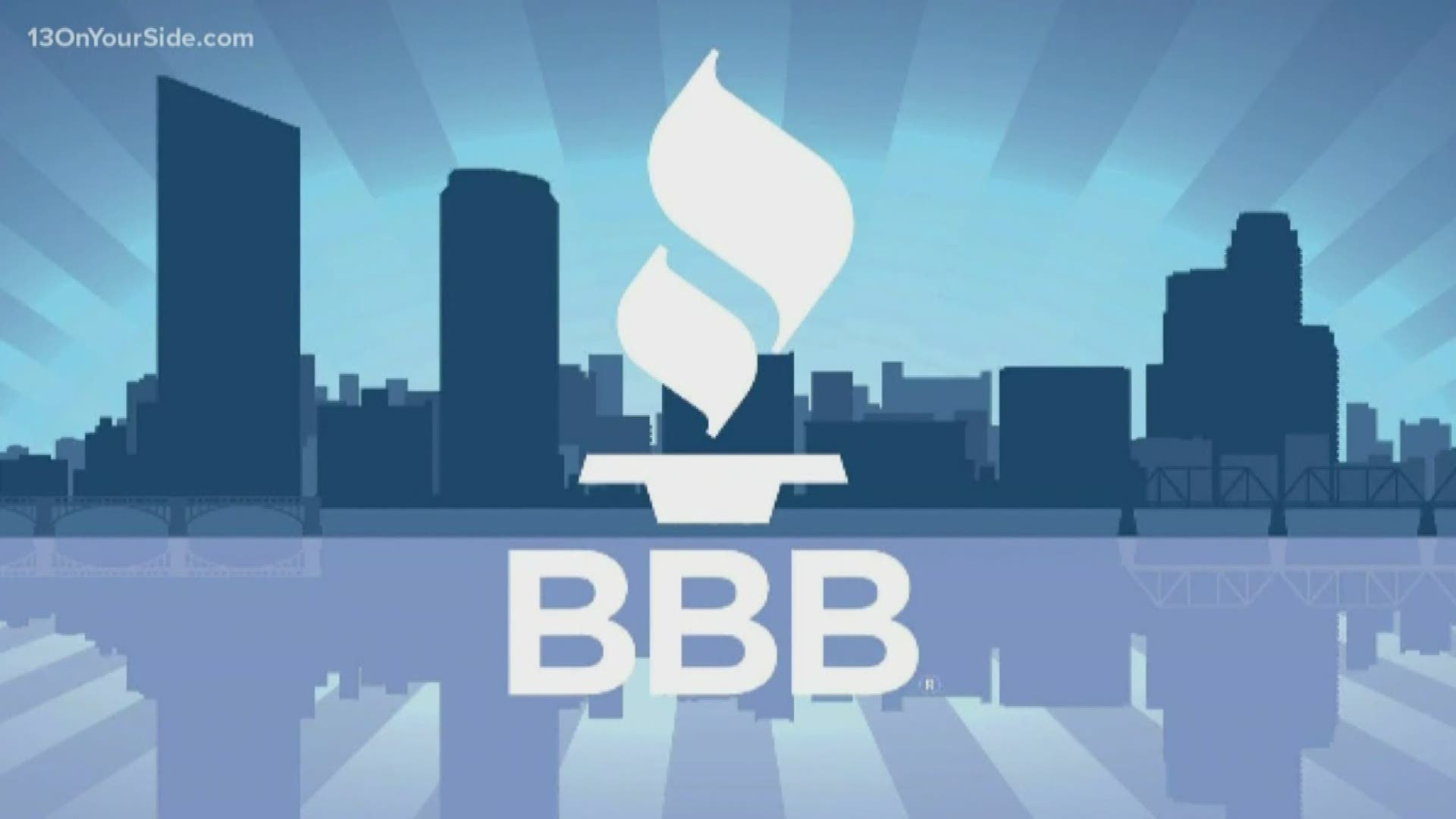GRAND RAPIDS, Mich. — The coronavirus pandemic has brought scam artists out of the woodwork, offering everything from protection patches to face masks.
Price-gouging also remains a problem, state officials say. Products impacted now include ground beef and beer. Toilet paper and hand sanitizers are at the epicenter.
“We are seeing a lot of reports, especially websites selling protective masks,’’ said Troy Baker of the Better Business Bureau in West Michigan. “Any time you see a website with these hard-to-find items, odds are it’s not legitimate.’’
Scams run the gamut. On Tuesday, the Attorney General’s office called out two Rockford-area businesses that were selling a "Coronavirus Defender Patch" to "help aid the immune system to defend itself."
Michigan Attorney General Dana Nessel this month assigned a team of agents to investigate complaints of price gouging, which grows on a daily basis.
As of early Tuesday, March 24, price-gouging complaints tied to the coronavirus approached 1,600, Nessel said in a news release.
An executive order issued by Gov. Gretchen Whitmer defines price gouging as charging more than 20 percent above what was charged for the same item a few weeks ago.
That was the case with a 12-pack of beer in the Ionia County community of Portland, according to a shopper who complained to the Better Business Bureau. The normal price of $13.99 spiked to $16.99 on Monday.
"And that’s really problematic," Baker said. “It is not ethical to be taking advantage of consumers at a time when we’re in an emergency, whether it’s beer or ground beef or toilet paper.’’
Stores that continue to charge prices considered to be “beyond justifiable amounts’’ face sanctions, Nessel said.
“Fear is a powerful motivator,’’ Nessel said. “But working together, we can stabilize both the prices and the levels of supplies on our grocery store shelves.’’
Nessel’s office on Tuesday sent "cease and desist" letters to the two Rockford area businesses selling the “Coronavirus Defender Patch,’’ which they marketed as a coronavirus defense tool.
The businesses also claimed the $49.99 patch “can help lessen the effect of the virus if you already have it.’’
The AG’s office identified the businesses as Frequency Apps Corp. and Biores Technologies, Inc. The businesses said consumers could receive a 30-day supply for free when they buy a 45-day supply of any patches they sell.
Buyers were advised to place a patch on their upper arm or shoulder and replace it after three days.
“Providing consumers with a false sense of security that these patches could somehow protect them from this virus is simply wrong,’’ Nessel said.
A FEDERAL CASE:
Scams have also gotten the attention of the FBI, which is warning consumers to look out for fake emails claiming to be from the Centers for Disease Control and Prevention as well as emails asking for personal information.
Emails claiming to be from the CDC may contain links and attachments that deliver malware to your computer to steal personal information, according to a news release from the FBI office in Detroit.
“Be wary of websites and apps claiming to track COVID-19 cases worldwide,’’ the release states. “Criminals are using malicious websites to infect and lock devices until payment is received.’’
Phishing emails asking the recipient to verify personal information in order to receive an economic stimulus check are also making the rounds.
“Government agencies are not sending unsolicited emails seeking your private information in order to send you money,’’ the news release states.
More stories on 13 ON YOUR SIDE:
►Make it easy to keep up to date with more stories like this. Download the 13 ON YOUR SIDE app now.
Have a news tip? Email news@13onyourside.com, visit our Facebook page or Twitter. Subscribe to our YouTube channel.

